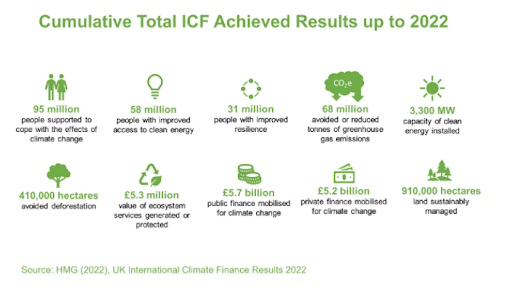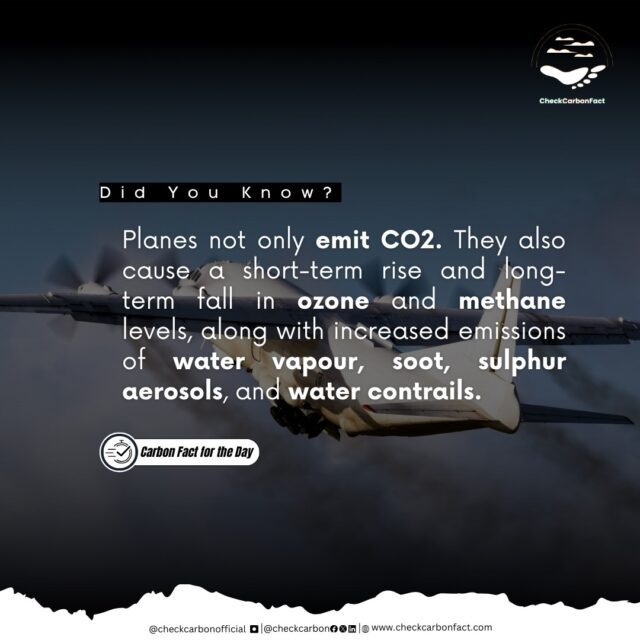
10 Jul What is the UK International Climate Finance Strategy?
Welcome to the 2020s – The Decade of Climate Action! Climate change and nature loss are among the most pressing challenges we face globally. Global warming is accelerating, and the effects of climate change are becoming more severe. If we don’t take immediate and significant action, we risk reaching irreversible tipping points. By 2030, the impacts could push millions into poverty, hitting the most vulnerable hardest, including women, indigenous communities, and people with disabilities.
The UK is stepping up with a pledge to double its International Climate Finance (ICF) to £11.6 billion between 2021 and 2026. This includes at least £3 billion specifically for protecting and restoring nature. Additionally, the UK is tripling its adaptation finance to £1.5 billion by 2025. These funds aim to reduce emissions, build resilience, and support sustainable growth, especially in vulnerable communities.
The Critical Decade for Climate Action
The 2020s are pivotal for achieving climate goals, as the window for effective action to secure a sustainable future is rapidly closing. Continued high emissions rates could exhaust the world’s remaining carbon budget within this decade, risking irreversible tipping points in climate and ecological systems. The Intergovernmental Panel on Climate Change (IPCC) warns that without immediate and substantial emissions reductions across all sectors, limiting global warming to 1.5°C will be unattainable. The World Bank projects that by 2030, climate change could push 68 to 132 million people into poverty, disproportionately affecting women, girls, indigenous communities, people with disabilities, and other marginalized groups.
Major investments in decarbonization over the next five to ten years are essential to align with the Paris Agreement and Glasgow Climate Pact goals. Accelerating global development and deployment of clean technologies is therefore crucial for making them the most affordable and attractive choices by 2030. Protecting nature and biodiversity is equally important, as terrestrial and marine ecosystems sequester a significant portion of anthropogenic carbon emissions and support the global economy, food and health security, and overall well-being.
The UN predicted that with current extinction rates drastically higher than historical norms, failing to act could result in a $10 trillion loss in global GDP by 2050, with the greatest impact on low- and middle-income countries. Immediate action is necessary to create a low-carbon world, where healthy ecosystems underpin economic growth, sustainable energy, cleaner air, secure food and water supplies, protected biodiversity, sustainable cities, and innovative job creation.
.Four Pillars of the UK ICF Strategy
- Clean Energy: Reducing reliance on fossil fuels is critical. The UK will support developing countries in transitioning to clean, affordable, and reliable energy. This means investing in renewable energy technologies and ensuring that everyone, especially marginalized groups, can access clean energy.
- Nature for Climate and People: Protecting and restoring nature is vital for capturing carbon and supporting biodiversity. The UK will help countries manage their natural resources sustainably and integrate the value of nature into their economic decisions.
- Adaptation and Resilience: Climate impacts are already being felt worldwide. The UK will support vulnerable communities in adapting to these changes, building capacity to withstand and recover from climate-related shocks.
- Sustainable Cities, Infrastructure, and Transport: With urban populations growing rapidly, cities are key to our climate goals. The UK will invest in sustainable urban development, green infrastructure, and clean transportation systems to create climate-resilient cities.
The Role of Climate Finance
Climate finance is a cornerstone of the Paris Agreement, with the UK and other developed nations pledging to collectively provide and mobilize $100 billion annually for developing countries from both public and private sectors under the UNFCCC framework. The UK met its goal of delivering at least £5.8 billion in International Climate Finance (ICF) from 2016/17 to 2020/21 and announced a doubling of this commitment to £11.6 billion for the period from 2021/22 to 2025/26. During the UK’s UNFCCC COP presidency, 95% of the largest climate finance providers from developed countries made new commitments, with many increasing their contributions significantly. Despite this progress, further efforts are needed to fulfill these promises. This includes enhancing accessibility to climate finance, increasing funds for adaptation, scaling up mitigation finance for low-carbon investments, and integrating gender-responsiveness and social inclusion benefits.
Climate finance aims to facilitate the transition to low-carbon, climate-resilient, and nature-positive development by providing capital investment, technical assistance, and capacity building, while also attracting private sector investments. Since 2011, UK ICF investments have helped 95 million people adapt to climate change, provided 58 million people with better access to clean energy, and reduced or avoided 68 million tonnes of greenhouse gas emissions.
The UK’s Ambitious Climate Finance Target
The UK is committed to doubling its International Climate Finance (ICF) to £11.6 billion between 2021/22 and 2025/26, with at least £3 billion earmarked for nature-based solutions. This funding aims to achieve significant outcomes in climate mitigation, adaptation, biodiversity, and poverty reduction by creating jobs and promoting sustainable economic growth in vulnerable communities. At COP27, the Prime Minister announced a tripling of adaptation finance from £500 million in 2019 to £1.5 billion by 2025. The UK seeks to accelerate the global shift to net zero by providing developing countries with better access to finance, leveraging British Investment Partnerships (BIP) to strengthen economic ties, and mobilizing private sector funds to meet climate and nature goals.

The UK’s ICF strategy balances support between mitigation and adaptation, focusing on reducing emissions in rapidly growing and nature-rich countries while aiding the most vulnerable in becoming more resilient. The UK aims to enhance the gender-responsiveness and inclusivity of its climate finance, increasing the proportion directed towards gender equality. Over the next five years, UK ICF will drive systemic changes across four themes: accelerating the clean energy transition, protecting and restoring nature, building adaptation and resilience, and promoting sustainable urbanization and infrastructure development. This comprehensive approach is designed to meet the goals of the Paris Agreement and the Glasgow Climate Pact, ensuring a sustainable future for all.
Effective Delivery and UK Leadership
Effective delivery and UK leadership will integrate the common approaches across four key themes. Nature-based solutions like ecosystem-based adaptation can mitigate climate risks while offering multiple co-benefits, such as urban greening to provide local cooling and natural systems like wetlands and forests to reduce flood risks. Coastal wetlands can also shield against erosion and flooding from storms and rising sea levels.
Let quickly explore the core objectives of the UK International Climate Finance Strategy across its key pillars.
- Clean Energy
The IPCC Sixth Assessment Report estimates that in 2019, the energy sector accounted for 34% of global greenhouse gas emissions, with an additional 32% from energy use in buildings, transport, and industry. By 2030, the UK aims to:
- Provide affordable, reliable, sustainable, and modern energy for all, aligning with SDG 7.
- Mitigate climate change by significantly reducing carbon emissions from energy.
- Develop gender-responsive clean energy services to enhance economic opportunities, health, education, and safety for women and marginalized groups.
- Nature for Climate and People
By 2030, the UK ICF aims to:
- Protect, restore, and sustainably manage terrestrial and marine ecosystems.
- Reduce emissions from deforestation and forest degradation, enhance carbon sinks, and promote sustainable land use.
- Support communities dependent on natural resources to build climate resilience, enhance livelihoods, and reduce poverty.
- Adaptation and Resilience
By 2030, the UK ICF will:
- Enhance the resilience of vulnerable communities and ecosystems to climate change impacts.
- Support the development and implementation of climate-resilient infrastructure, policies, and practices.
- Strengthen early warning systems, disaster risk reduction, and adaptive capacity to minimize climate-related risks.
- Sustainable Cities, Infrastructure, and Transport
By 2030, the UK ICF will:
- Promote sustainable urbanization and low-carbon development in cities.
- Enhance access to clean, safe, and resilient infrastructure and transport systems.
- Support the transition to smart, inclusive, and climate-resilient cities.
Implementation and Monitoring
To ensure the effective delivery of the UK International Climate Finance (ICF) Strategy, a multi-faceted approach will be adopted, focusing on leveraging partnerships, employing robust monitoring and evaluation frameworks, and fostering innovation and knowledge sharing.
- Leveraging Partnerships
The UK will collaborate closely with a diverse range of partners, including international organizations, governments, the private sector, and civil society. By building strong alliances, the UK aims to maximize the reach and impact of its climate finance initiatives. These partnerships will facilitate the sharing of best practices, resources, and expertise, ensuring that climate finance projects are effectively implemented and scaled up.
- Robust Monitoring and Evaluation
To ensure accountability and transparency, the UK will employ robust monitoring and evaluation frameworks. These frameworks will track progress against set goals and objectives, enabling the identification of areas for improvement and ensuring that resources are used efficiently. Regular reporting and assessments will help measure the effectiveness of climate finance initiatives, ensuring that they deliver tangible benefits for climate mitigation, adaptation, and sustainable development.
Key aspects of this approach include:
- Performance Indicators: Developing clear performance indicators to measure the impact of climate finance projects.
- Regular Reporting: Implementing a system of regular reporting to track progress and identify any challenges or bottlenecks.
- Feedback Mechanisms: Establishing feedback mechanisms to gather input from stakeholders and beneficiaries, ensuring that projects are responsive to their needs and concerns.
- Fostering Innovation and Knowledge Sharing
Innovation and continuous learning are essential for the success of climate finance initiatives. The UK will foster an environment that encourages innovation, supporting the development and deployment of new technologies and approaches that can enhance the effectiveness of climate finance.
- Research and Development: Investing in research and development to discover innovative solutions for climate mitigation and adaptation.
- Capacity Building: Providing technical assistance and capacity building to help developing countries implement effective climate finance projects.
- Knowledge Sharing: Promoting knowledge sharing and best practices through workshops, conferences, and digital platforms, enabling stakeholders to learn from successful projects and replicate their success.
- Continuous Improvement
The UK is committed to continuously improving its climate finance strategy by integrating lessons learned from past initiatives and staying responsive to emerging challenges and opportunities. This dynamic approach ensures that the UK’s climate finance efforts remain effective and aligned with global climate goals.
By focusing on these strategic areas and leveraging its leadership and expertise, the UK aims to make a significant contribution to global efforts to combat climate change, protect nature, and promote sustainable development. This comprehensive implementation and monitoring framework will ensure that UK ICF delivers tangible, impactful results, helping to build a more resilient and sustainable future for all.
Embracing Tomorrow’s Climate Challenges Today
In forging ahead with its doubled commitment to International Climate Finance, the UK exemplifies bold leadership in the face of our planet’s greatest existential threat. By prioritizing investments in clean energy, nature conservation, resilient communities, and sustainable urbanization, the UK not only meets its financial obligations but also inspires global action towards a greener, more equitable future. This commitment is more than fiscal; it signifies a shared responsibility to safeguard our ecosystems, empower vulnerable communities, and foster innovation for generations to come. As we navigate the complexities of climate change, the UK’s steadfast dedication to collaboration and measurable impact sets a precedent for global climate governance. Together, let us heed this call to action, charting a course towards a sustainable world where prosperity thrives hand in hand with environmental stewardship.
About CheckCarbonFact
CheckCarbonFact is a social accountability platform for promoting sustainability and responsible climate action by citizens, businesses and government. Read more about us here: https://checkcarbonfact.com/about/
Carbon Fact for the Day

[wen_cta id=”2716″]

No Comments